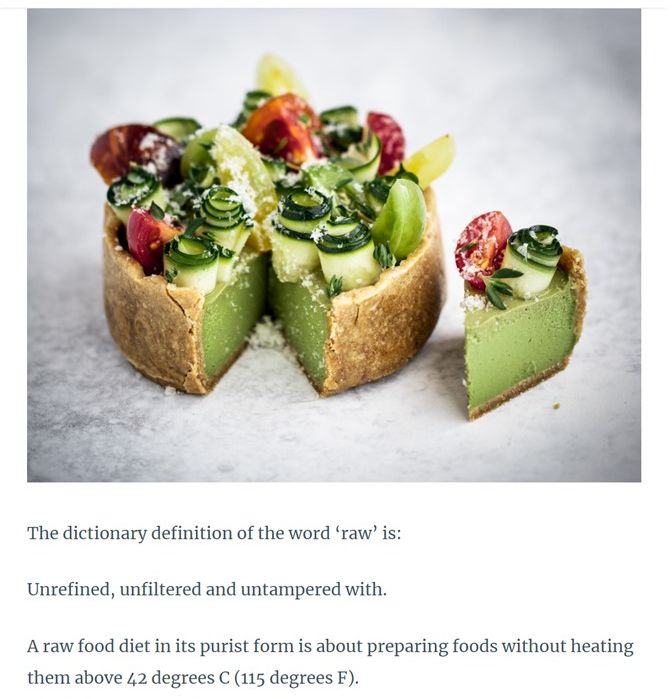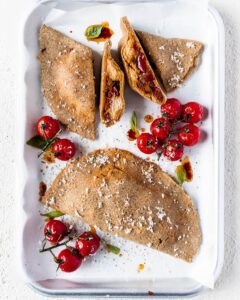I would like to introduce you to Russel James,
the Raw Chef
They say raw food is a “Lifestyle” and I can not agree more. I would like to introduce to one my most favorite raw cook chef Russel James, who changed his eating habits because of his “acne problems” 20 years ago and became involved in raw food since then. I love very much his approach
“Before we get into talking about what you’re going to eat, think about why you want to be a healthy eater. Back in my 20s, when I had acne, I dabbled with healthy eating and juicing. The idea that I could improve my skin with what I ate made total sense to me.”
SO, why do you want to be a healty eater?
The raw chef will be giving information about this lifestyle, and will teach techniques how you can integrate it to your daily life. You don’t need to be vegan to eat raw. “Not at all! In fact, most of the people that use our recipes want to add some raw vegan food into their current diet, rather than become a raw food vegan.”

The idea is that to maintain the nutritional quality of the vitamins, minerals, proteins and enzymes in their most natural and healthy form. That means no cooking, at least not in the way you’re used to. Those who are into raw food and a raw food diet tend to also be very into natural health and organic whole foods (also eaten cooked). They often come to the diet because of some health concern or event, in search of healing. Anecdotally there are many incredible stories of people that have used raw foods to heal themselves.
Enzymes in raw food
Raw and living foods have their enzymes intact. Raw foodists believe enzymes can be thought of as the life force of the food, helping your body digest it. Enzymes are also a catalyst for every function in the body.
The most fragile of enzymes start to die off at that 42C/115F degree mark. So when cooking food, you not only denature those enzymes, but also some of the vitamins, minerals, enzymes and proteins.
What is a raw food diet?
Raw foodists find they do really well with a high amount of raw food in their diet. But not everyone considers themselves a raw foodist. People who are into a raw food diet, but don’t consider themselves a purist make up the rest of their diet with ‘as raw as possible’ or ‘raw-centric’ foods. This means their diet may be made up of whole foods, including cooked food that are unrefined, unfiltered and untampered with.
There’s a whole variety of ways to cook foods, from steaming at the ‘gentle’ end of the spectrum, to deep fat frying and the other. For this reason it’s not true to think of all cooked foods as the same, putting them into the ‘bad’ category, which some tend to do. I like to have a more balanced view. So I love raw food, I think home cooked whole foods are also wonderful for health. However, on this site we just focus on the raw food diet.
7 Ways Fermented Foods Can Benefit Your Health
Fermented foods. You hear about them all the time, but what exactly are fermented foods, and how can they benefit us?
In Russia it’s kombucha.
In Japan it’s miso.
In Indonesia it’s tempeh.
In northern Europe it’s Sauerkraut.
In England it’s Mead (we like to get drunk).
In France it’s cheese and wine.
In Korea it’s kimchee.









